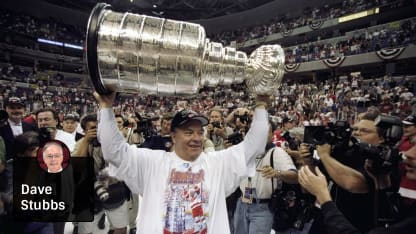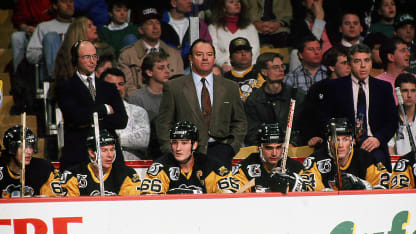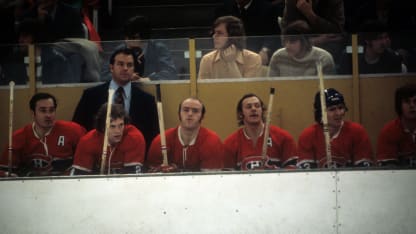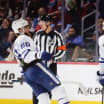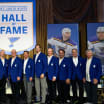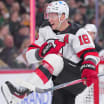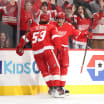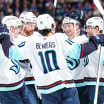"Montreal Canadiens, 1974-75, Bob Gainey's name is misspelled as 'Gainy.' And one more: defenseman Don Awrey won the Cup with Boston in 1970 and 1972, then was traded to Montreal in 1974. He played all 11 of our playoff games in 1975, a year we didn't win, then 72 games in 1975-76 before he broke his leg near the end of the season, which kept him out of the playoffs. He got a Stanley Cup ring but he didn't get his name on the Cup."
Bowman's name is tapped into the trophy's sterling bands with four teams: as coach of the Canadiens in 1973 and 1976-79; of the Penguins in 1992; of the Detroit Red Wings in 1997, 1998 and 2002; and as an executive with the Penguins (1991), Red Wings (2008) and Chicago Blackhawks (2010, 2013 and 2015).
It is the first and last of Bowman's nine championships as a coach that stand out most to him, titles separated by 29 years.
"They're all special, but the first I won with Montreal in 1973 stands out, as does 2002 with Detroit because I knew I'd not be coming back to coach that fall," he said. "What I didn't know was that I'd win a few more in team management."
Bowman's first championship came in his second year as the Canadiens coach, following three seasons and change with the St. Louis Blues. He keenly remembers the 1973 Stanley Cup Final, a six-game series against Chicago, the title clinched on the road.
"We won the first two at home, split in Chicago, then lost Game 5 at home, 8-7, with Ken Dryden in our net and Tony Esposito in theirs," he said. "Then we went to Chicago and won 6-4. Bizarre. Imagine, 25 goals in two games of a Cup Final scored against the two top goalies of the 1970s."
Bowman, 83, recalls a large crowd awaiting the Canadiens at the airport when their charter flight touched down in Montreal, and having his parents at a dinner organized in a hotel ballroom a few nights later for players, management, office staff and families.
"We took a lot of pictures," Bowman said. "My parents were quiet people, they didn't say very much. They came to Canada from Scotland in 1929 and my dad was very interested in soccer because he'd played it over there. They didn't go to a lot of hockey games but they were excited for me."
Of his five championships with the Canadiens, only one was clinched on home ice, in 1979 against the New York Rangers.
